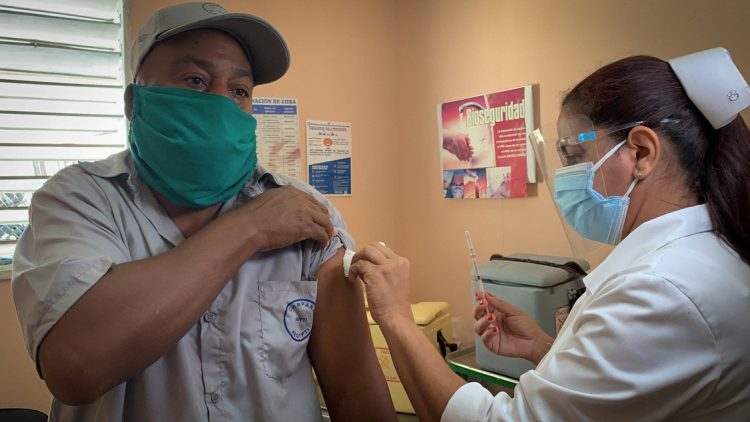Cuba is developing its own digital COVID vaccination passport, similar to the one promoted by other countries and regions of the world, the official media reported.
The Cuban passport is a project of the University of Computer Sciences (UCI) and is currently in the testing phase. “The different versions of the digital vaccination passports existing in the world were analyzed” for its creation, Allan Pierra Fuentes, director of the Technological Support Center of that house of higher studies, commented to Granma daily.
The digital document developed by the UCI uses a QR code, “which will include the encrypted data of each person with an authorized signature, recognized by the WHO, which would only be provided by the Ministry of Public Health (MINSAP) and which can be read anywhere in the world, as it follows international standards,” said the publication.
#Cuba cuenta con su Pasaporte Digital de vacunación #COVID19, desarrollado según estándares internacionales. ¿Qué es y cómo funciona? #CubaInformatiza #CubaPorLaSalud @DiazCanelB @MINSAPCuba @WHO @MinturCuba @MINCOMCuba @ETECSA_Cuba @PCTHabana_3CE @WalterBG_uci @AtomunteleSUR pic.twitter.com/pKcs8GNnI0
— Universidad de las Ciencias Informáticas (@universidad_uci) May 26, 2021
“The idea is that any Cuban can have that digital passport printed, in the application on a mobile phone, send it by mail to the interested party or that it can be seen as an image on the cell phone,” explained Pierra Fuentes, who added that with that objective they have developed “three fundamental computing solutions.”
The first of these solutions is a web page in which “users enter their vaccination data and the digital passport is generated,” while the second is “the verifier, capable of saying what information is stored by that QR code and if it was generated with a valid signature,” the source said.
Finally, the third application is the so-called “Passport Wallet,” which, according to the specialist, “will allow not only the user to have information, but also of other people in the family, and it can be displayed once it is requested.”
According to Granma, the digital passport will also ensure health identification at the border and will provide Cubans and foreigners vaccinated in Cuba with the possibility of traveling with a valid vaccination document. In addition, it will serve to “regulate access to public places of concentration with health interest.”

Although Cuba has not yet officially begun mass COVID vaccination—for which the approval of the emergency use of some of its vaccine candidates would be necessary—, it is carrying out phase III clinical trials of its two most advanced immunogens, Abdala and Soberana 02, and also health interventions with both vaccine candidates in population groups and territories at risk.
As part of this process, to date hundreds of thousands of people have already received at least one dose, and the island’s authorities hope to expand vaccination in the coming weeks until 70% of the Cuban population has been immunized by the end of August.










